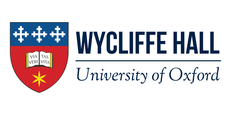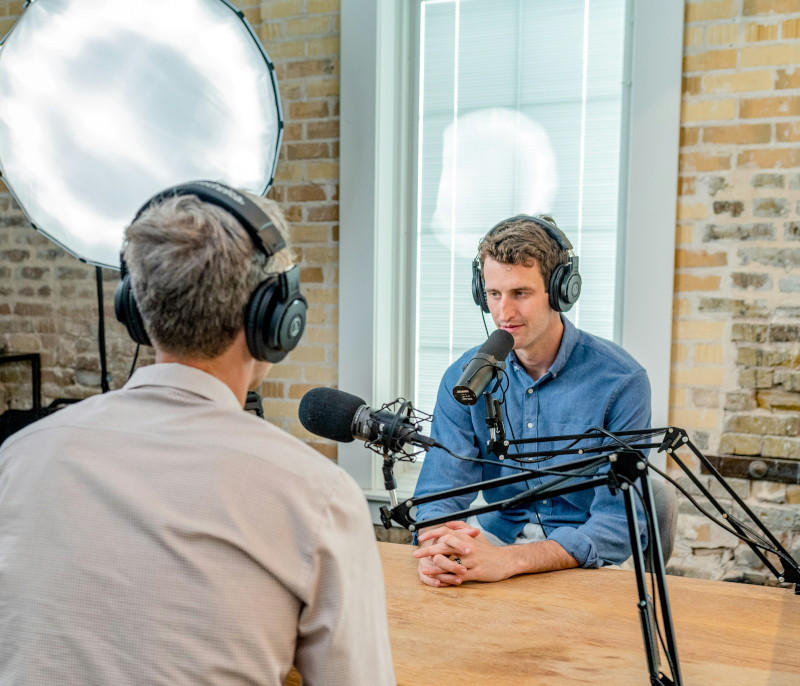Questioning the Questions: Addressing widely held assumptions
Vice Principal's Reflection
Revd Dr Justyn Terry writes:
I really enjoy listening to the Radio 4 ‘Today Programme’ each morning. It is particularly interesting to hear people interviewed about the news topics of the day, and to see how well they respond to the questioning. Sometimes it is noticeable that the questions carry with them a set of assumptions that the interviewee has to question before they can get to the question itself. They might be asked, for instance, questions like, ‘Who made God?’, that assumes God was created. If they simply accept the question as it is, they will be hard pressed to give a good answer.
Christians are called to ‘be ready to make your defence to anyone who demands from you an account of the hope that is in you,’ (1 Pet 3:15) and may need to question the questions in order to give a good answer. What are the main questions that might need questioning?
The first could be: ‘Who decides?’ Or, to put it more theologically, ‘Who is the judge?’ Since the Enlightenment, with its confidence in human reason, it has become widely assumed that human beings decide. And there are many occasions, no doubt, when it is appropriate that they do. But when it comes to questions like, ‘What constitutes a human being?’, or ‘How are people supposed to behave?’ or ‘What is the purpose of our existence?’ are these really questions humans should be expected to decide for themselves?
The classic Christian response to such questions is that it is God, our creator, who determines these things. God is the judge, not us. Swiss theologian Karl Barth sees this taking of God’s role as judge as the very essence of being fallen. So, ‘Who is the judge?’ is a question we might need to ask if the assumption is otherwise, ‘We are.’
A second related question is, ‘How do we decide?’ On what basis is judgement made? It has become standard practice to look to public opinion, or to consult our family or network of friends, or to trust our feelings. The great significance attached to public opinion should surely raise questions, not least because it changes so much over the years, but also by observing how pressure groups have become skilled at changing it. How reliable can it be for making important decisions? We might also wonder how reliable are our family and friends, or our feelings?
When Christians look to God rather than humans as the judge, they will also want to point to the standards that God has revealed in Jesus Christ, and in the law of God written in Scripture and on our hearts by the Holy Spirit. We ask, ‘How are we to love the Lord our God with all our heart, soul, mind and strength, and to love our neighbour as ourselves?’ These appeals go beyond the changing fashions of public opinion. So, the question of, ‘How do we decide?’ might be a second question that needs raising when we are questioned.
A third, related, question is: ‘How do we think we're doing?’ On whatever basis we are making our judgements, how do things look at the present time? No doubt, raising that question with people on the High Street would provide a wide range of views. But if we are assessing ourselves according to public opinion, the views of our family and friends, and on our own feelings, we may well feel that we're doing reasonably well; we are fitting in and getting along fine. We may not be doing as well as some people we know, but we are certainly doing better than others we can think of.
If, on the other hand, we compare ourselves with Jesus, or ask ourselves how well we are doing with loving God and loving our neighbours as ourselves, or whether we believe we are following the guidance of the Holy Spirit at all times, we may come to a rather different conclusion. So, if the assumption is that ‘most people are doing reasonably well most of the time,’ a Christian might feel that needs to be challenged. They will also want to talk about what Jesus has done about this situation, and the role of the Word and Spirit of God in redeeming us, but here again, questions might need to be raised about the questions society puts to us.
So it may be that rather than simply trying to answer the questions that come to us, we may need to ask questions about the questions. It could be worth clarifying underlying assumptions about who makes these decisions, about how these decisions are made, and about how we are currently doing, so that we might give the most helpful account for the hope that is in us.
Revd Dr Justyn Terry
Michaelmas Term 2025
Responding to questions during a radio interview





